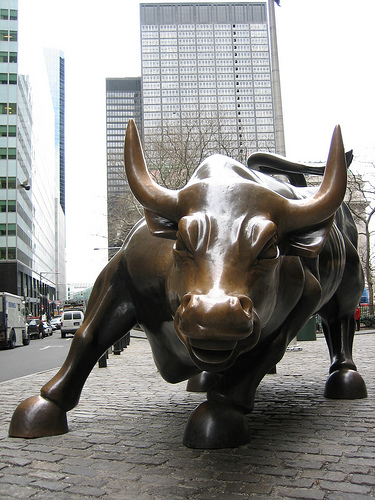Hello there, Drum readers! I’m Andy Kroll, a reporter here in MoJo’s DC bureau. For the next week, I’ll be one of the guest bloggers keeping the Drumbeat lively while Kevin lounges on a beach somewhere curled up with a McKinsey report and his new camera. (Kidding—I have no idea where he is.) My email is at the end of every post, so don’t hesitate to drop me a note or give me an earful. Onward…
Regulatory capture: It’s the wonky name for when an industry co-opts the watchdogs that are supposed to be regulating it. And there’s no clearer example of that than the banking industry and the Office of the Comptroller of the Currency (OCC), which oversees about 1,400 US banks. For instance, it was the OCC in 2003 that squashed Georgia’s efforts to outlaw the most toxic home loans on the market—think negative amortizing loans, NINJA (no income, no job, no assets) loans, you name it. How prescient.
On Tuesday, the OCC was at it again. Its chief, John Walsh, went before the Senate to testify against new bank capital requirements, calling for a “fundamental rethink” of rules that would force banks to keep more capital on their books to absorb losses and weather crises. “My view,” Walsh said, “is that we are in danger of trying to squeeze too much risk and complexity out of banking as we institute reforms to address problems and abuses stemming from the last crisis.” Translation: These rules will pinch bank profits.
Capital is the protective cushioning, if you will, that banks keep on hand in case disaster strikes. In the financial crisis of 2008 and 2009, plenty of banks didn’t think it was necessary to stash away capital, and when the crisis arrived, they suffered serious enough damage to necessitate a government rescue. Research by the World Bank and the International Monetary Fund shows definitively [PDF] that large banks with too little capital suffered far more during the crisis than those who chose the safer route.
Which is where the new requirements come in. As Kevin noted last fall, the Basel III proposals would hike capital requirements three- and four-fold, depending on the type of capital. There’s also a more recent proposal circulating to make larger banks hold still more capital as they grow in size. While technical, these reforms shouldn’t be scoffed at: Treasury Secretary Tim Geithner has called higher capital requirements the most important piece of financial reform.
But Walsh’s testimony adds to the growing drumbeat to weaken these requirements. He joins JPMorgan Chase exec Jamie Dimon and a host of other banking big-wigs in opposition.
One lawmaker who’s unequivocally onboard is Sen. Carl Levin (D-Mich.). A staunch defender of tighter financial regulations, Levin was so angered by Walsh’s testimony that he demanded his ouster in the middle of the hearing: “It is past time for the president to nominate new leadership at the OCC to protect American families and businesses from the excesses of Wall Street.” However, it’ll take more than one angry senator to beat back the banking lobby and put these rules into action.











